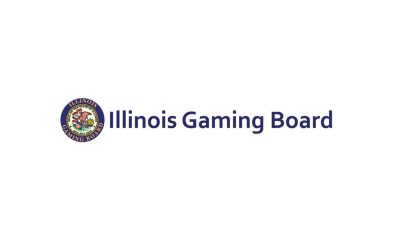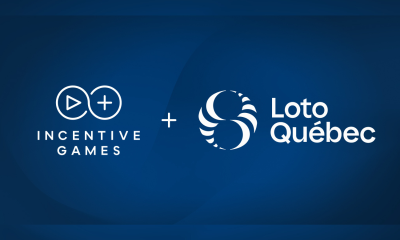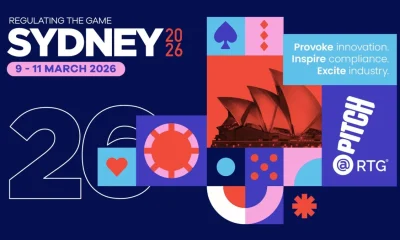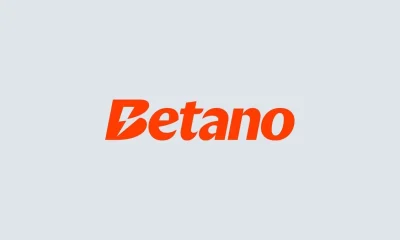Canada
Why Nova Scotia Won’t Ban Problem Gamblers from Casinos

The Nova Scotia government won’t ban problem gamblers from going to the province’s casinos. The decision was announced on Monday, following an online survey in which the government asked Nova Scotians if it should ban people who don’t want to gamble from casinos and slot facilities. The government says 86 per cent of the 3,000 people who responded said no; 15 per cent said yes and one per cent didn’t know or refused to answer.
However, Health Minister Leo Glavine also said that, if a problem gambler has gambling problems, the matter should be dealt with through the justice system or addiction services.
A brief history of gambling in Canada
Gambling has been a part of Canadian culture for centuries, with many Canadians taking part in different forms of gambling including lotteries and casinos. However, as gambling becomes more accessible, an increasing number of Canadians are developing gambling problems. This led to the introduction of Bill C-290, which proposed stricter regulations on the industry to protect problem gamblers. The bill was passed unanimously by Parliament but was never fully implemented due to a lack of funding.
Gambling in Nova Scotia
Nova Scotia has long been known as the center of gambling in Canada and is home to over 1,000 slot machines. A recent push from anti-gambling groups to ban problem gamblers from entering casinos was dismissed by Premier Stephen McNeil as they believe it would be a violation of their freedom. In place of this, they have created a voluntary exclusion program that would allow people who are struggling with gambling addiction to voluntarily exclude themselves from casinos. Many online casinos that legally operate in Nova Scotia also welcome any one willing to bet.
Gambling addiction facts
Problem gambling is a serious and persistent public health problem. About 1-3% of the population has a gambling addiction, which means there are about 250,000 people in Canada who need help. It’s estimated that about 10% of the population gambles at any one time, but this doesn’t mean they’re all addicted to it.
Gambling disorder is considered an impulse control disorder like other impulse control disorders such as obsessive-compulsive disorder (OCD) and pathological gambling. Gambling disorder can be difficult to diagnose because gamblers may not be aware they have a problem until their life is impacted negatively by their behavior.
In general, provinces regulate casinos, but municipalities can create bylaws that prohibit or restrict casino development on their territory.
The connection between problem gamblers and casinos
Problem gamblers can be defined as people who spend an excessive amount of money on gambling or individuals who have trouble controlling their gambling behavior. There are many different factors that contribute to the development of a problem gambler, but it is often believed that spending time in a casino increases the risk for developing these behaviors.
Casinos are designed to make gambling more enticing by providing a variety of options and rewarding players with freebies. The layout of casinos contributes to this too – they are laid out so that slot machines and table games surround the player, which makes it difficult for them to leave without passing by even more gambling opportunities. The tendency of casinos to offer customers easy access to everything they want at any hour also encourages longer play sessions and worsens gambling addiction.
How can we solve this problem?
Nova Scotia should consider introducing a self-exclusion program that would allow people to voluntarily ban themselves from casinos. This would make sense because casinos are the only place problem gamblers can legally gamble. They also offer other forms of entertainment such as live music, movies, and restaurants.
Self-exclusion programs have proven effective in other countries with gambling addiction issues, so this could be a good way to stop problem gambling while allowing those who don’t have an issue to enjoy themselves.
Problem gamblers and online casino
Problem gamblers are no different than alcoholics or drug addicts, but the stigma around gambling addiction is much less. These people need help and support just like any other addict would. Banning them from casinos doesn’t mean they won’t continue to gamble; it just means they will do it in private and without help.
The government needs to focus on prevention and rehabilitation for this issue, not punishment. The focus should be on those who suffer from a gambling addiction rather than those who don’t. We know there’s going to be more at-risk populations if we don’t offer some sort of service, said Smith. If you’re doing harm reduction, then let’s look at those folks first.
In summary
Nova Scotia’s gambling regulator, the Alcohol and Gaming Authority of Nova Scotia (AGANS), has said that it will not ban problem gamblers from casinos. The decision comes after a recent report by the provincial government found that an estimated 11% of casino patrons are problem gamblers, up from 7% five years ago.
There is no evidence that banning these people from casinos would reduce their gaming activity. Rather than banning them, AGANS has chosen to implement a self-exclusion program where problem gamblers can voluntarily sign themselves out.
A self-exclusion program has been in place at the Casino Nova Scotia since 2006.
Powered by WPeMatico
Alex Malchenko
Evoplay Strengthens Canadian Presence with BetMGM Partnership

Evoplay is celebrating another milestone in its regulated-market journey with a new launch in Ontario, teaming up with BetMGM to bring its games to one of Canada’s most dynamic and competitive jurisdictions.
The rollout introduces 18 Evoplay titles to BetMGM Casino in Ontario, carefully selected to deliver long-term engagement and appeal to a wide range of player preferences. The first wave includes proven performers such as:
• Hot Triple Sevens
• Hot Volcano
• Gold of Sirens Bonus Buy
• Inner Fire Bonus Buy.
These are games that have already demonstrated strong results across multiple regulated markets.
This launch marks another confident step in Evoplay’s Canadian expansion, reinforcing the company’s commitment to aligning its content with local market requirements, player expectations, and regulatory standards.
Alex Malchenko, Head of Sales at Evoplay, said: Ontario continues to set a high standard for regulated online casinos, making it a market where the right partnerships truly matter. Collaborating with BetMGM allows us to expand our reach with a portfolio that has already performed strongly across multiple areas and territories.
Oliver Bartlett, VP of Gaming at BetMGM, said: “Partnering with Evoplay adds a strong selection of proven, high-performing titles to our growing portfolio in Ontario.”
The post Evoplay Strengthens Canadian Presence with BetMGM Partnership appeared first on Americas iGaming & Sports Betting News.
Bet Rite
Spintec Expands into Canada with Bet Rite
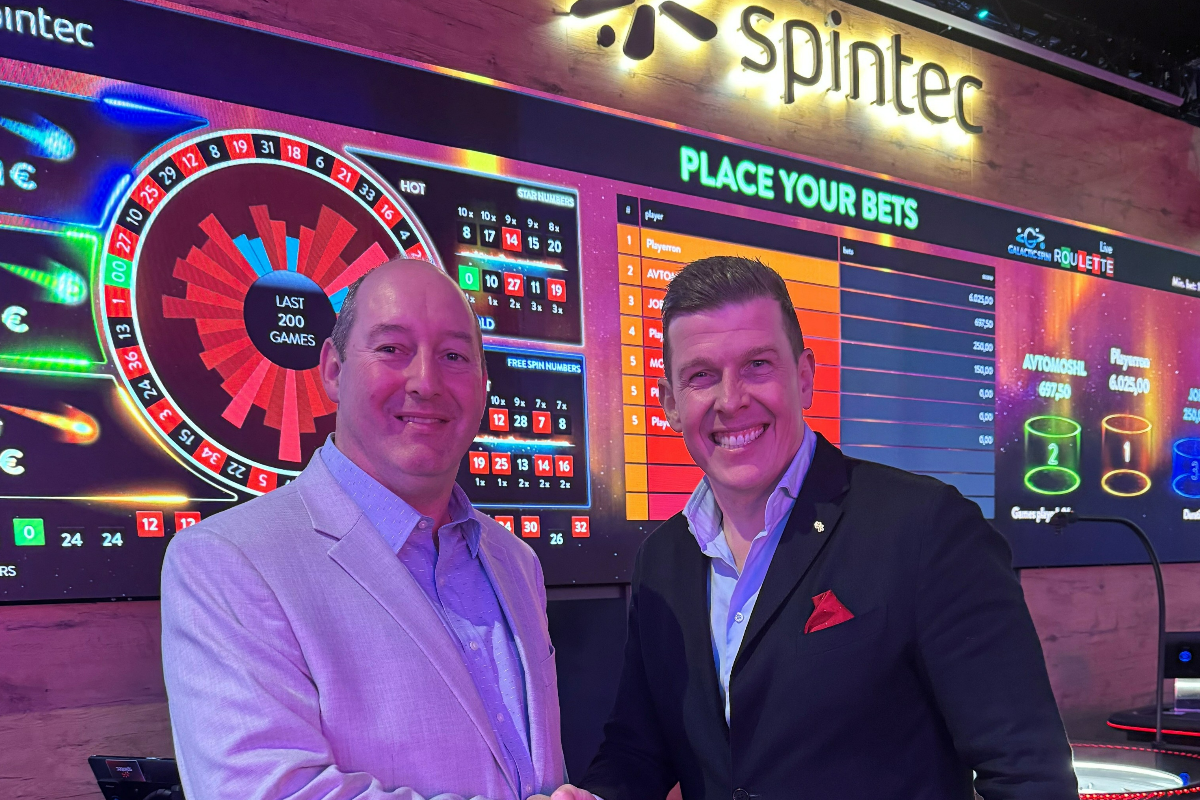
Spintec is expanding its footprint in North America by partnering with Bet Rite in the Canadian gambling sector. As a prominent developer of electronic table games, Spintec invested significant effort into locating a partner who comprehends the distinctiveness of the Canadian casino industry. Bet Rite is taking on the position of Spintec’s distributor in Canada, leveraging its established reputation and substantial industry knowledge. This collaboration combines global innovation with local expertise in a partnership that is helping Spintec advance its expansion objectives in North America.
Bet Rite’s establishment is rooted in years of industry expertise. The firm focuses on providing top-notch gaming solutions designed specifically for Canadian operators. They aim to provide a sole vendor connection that grants access to numerous top-tier product lines, establishing them as a reliable partner nationwide.
For Spintec, collaborating with a company that prioritizes service, product excellence, and enduring relationships is vital, and Bet Rite is dedicated to prioritizing customer needs. With a solid sales network and a reputation for dependability, their market stance is highly strong.
Through this collaboration, Spintec is guaranteeing that their creative products receive backing from an attentive, community-focused service. The initial product line to be launched in the Canadian market will be Spintec’s premier Charisma line. Charisma’s design, flexibility, innovation, and wide range of product customizations will undoubtedly make it a top seller in Canada as well.
Billy Maclellan, Bet Rite President, says: “Our company has grown by offering best-in-class suppliers the local support that they need. Spintec fits the mold perfectly and together we are well placed to make this partnership a glowing success”
Goran Sovilj, Spintec’s Chief Commercial Officer, agrees: “Bet Rite’s deep understanding of the Canadian market makes this alliance very promising. We are always excited to introduce innovative and exciting products to new markets, especially when our distributors are as experienced and knowledgeable as Bet Rite.”
The post Spintec Expands into Canada with Bet Rite appeared first on Eastern European Gaming | Global iGaming & Tech Intelligence Hub.
Canada
Gaming Corps takes flight in Ontario with High Flyer Casino partnership

Gaming Corps, the Sweden-based publicly listed game development studio, has secured a new content partnership with High Flyer Casino, an AGCO-licensed online gaming operator in Ontario, Canada. The agreement marks another strategic step forward for Gaming Corps as it continues to grow its footprint in one of North America’s most competitive regulated iGaming markets.
As part of the deal, a curated selection of Gaming Corps’ slot titles will be made available to High Flyer Casino players across Ontario. The initial launch includes 3 Pigs of the Caribbean, a swashbuckling instalment from the well-known 3 Pigs franchise, alongside Savannah Stacks, a high-volatility slot inspired by the thrills of a safari adventure.
High Flyer Casino has established itself as a slots-focused operator with a strong reputation for value-driven, mobile-first gaming experiences tailored to Canadian players. Operated by Ellipse Entertainment Limited, the company draws on more than 25 years of industry expertise and offers a diverse portfolio that features over 100 exclusive games. Its offering is further enhanced by the proprietary Reel Jackpot brand, popular Money Spinner titles, and a wide range of progressive slots.
Commenting on the partnership, Adam Pentecost, Chief Revenue Officer at Gaming Corps, said:
“High Flyer Casino has carved out a clear position in Ontario with a focused slots strategy and a strong understanding of what local players are looking for. Bringing our most recognisable titles to their platform allows us to reach a highly engaged audience in a market that continues to set the pace in North America. This agreement represents another meaningful step in expanding our distribution with operators who value distinctive content and long-term portfolio growth.”
Man Mac, Head of Marketing at High Flyer Casino, added:
“At High Flyer Casino, we are building a slot lineup that blends proven player appeal with unique and memorable gaming experiences. Gaming Corps’ portfolio fits perfectly with that approach, delivering polished, entertaining games that are full of personality.”
The post Gaming Corps takes flight in Ontario with High Flyer Casino partnership appeared first on Eastern European Gaming | Global iGaming & Tech Intelligence Hub.
-

 Compliance Updates5 days ago
Compliance Updates5 days agoIllinois Gaming Board and Attorney General’s Office Issue more than 60 Cease-and-Desist Letters to Illegal Online Casino and Sweepstakes Operators
-

 Canada5 days ago
Canada5 days agoINCENTIVE GAMES PARTNERS WITH LOTO-QUÉBEC TO LAUNCH REAL-MONEY GAMES IN THE PROVINCE OF QUÉBEC, CANADA
-

 Latest News5 days ago
Latest News5 days agoLaunch Of A Fresh Online Casino Guide 2026
-

 Always Up! x100005 days ago
Always Up! x100005 days agoRing in the Chinese New Year with BGaming’s Seasonal Promotion
-

 Australia5 days ago
Australia5 days agoRegulating the Game 2026 Sydney — One Month Countdown as Sector Leaders Anticipate Inaugural RTG Global Awards
-

 Latest News5 days ago
Latest News5 days agoVolcano Power — Hold & Hit 3×3 from Spinomenal
-

 Affigates5 days ago
Affigates5 days agoSoftConstruct AI and Affigates Bring Cutting‑Edge Solutions to AIBC Eurasia 2026 in Dubai
-

 Accra4 days ago
Accra4 days agoKaizen Gaming Launches Betano in Ghana — 20th Regulated Market & Responsible GameTech Expansion




